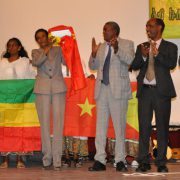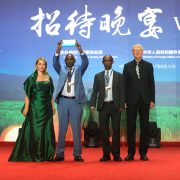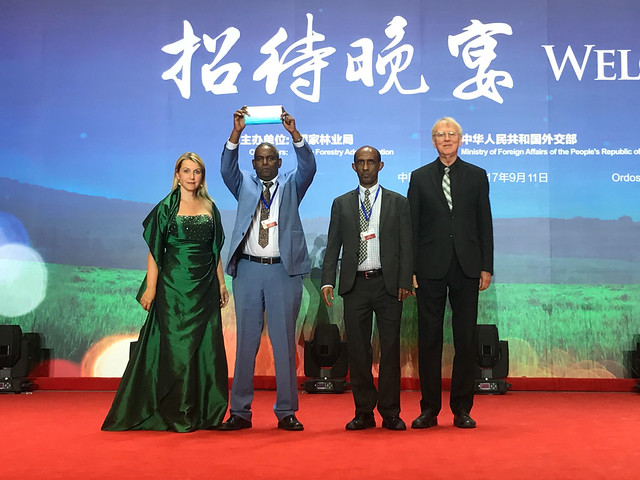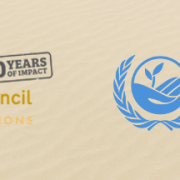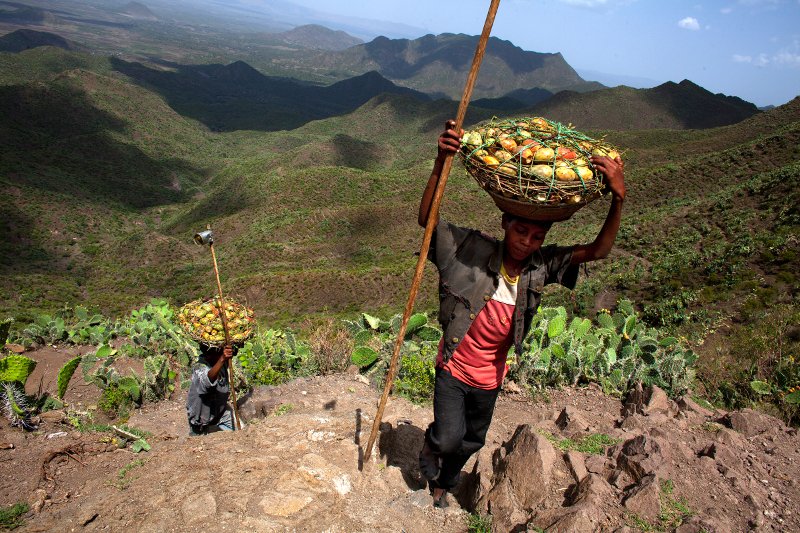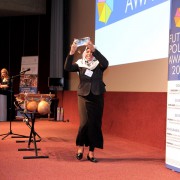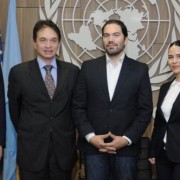Hamburg/Bonn, 20 July 2017 – The 2017 Future Policy Award has released a shortlist of the world’s best policies for tackling land degradation, one of humanity’s foremost challenges that undermines food security, livelihoods and the health of hundreds of millions of people.
The six shortlisted policies are from Australia, Brazil, China, Ethiopia’s Tigray Region, Jordan, and Niger. The international 4 per 1000 initiative is also contending for the Future Policy Award.
The prestigious award, which focuses on a different area of policy progress each year, celebrates exemplary laws that create better living conditions for current and future generations.
For this year’s award, the World Future Council teamed up with the United Nations Convention to Combat Desertification (UNCCD) to highlight laws and policies that contribute in two ways.
First, laws that protect of life and livelihoods in the drylands. Drylands cover close to 40 per cent of the Earth’s land and are extremely vulnerable to over-exploitation, inappropriate land use and climate variability. They are among the most conflict- and drought-prone regions of the world.
Droughts, which are getting more severe, frequent and widespread with climate change, are common in drylands, and can amplify tensions within and between communities. In the last century, droughts killed more people than any other weather-related catastrophe.
Second, laws that advance Sustainable Development Goal 15, target 3, which is to combat desertification, restore degraded land and soil, including land affected by desertification, drought and floods, and strive to achieve a land degradation-neutral world.
Political instability, deforestation, overgrazing and bad irrigation practices can all contribute to desertification. Without action to restore and rehabilitate degraded land, an estimated 135 million people are at risk of being displaced by desertification.
UNCCD’s Executive Secretary Monique Barbut describes desertification as “a silent, invisible crisis that is destabilizing communities on a global scale.”
In total, twenty-seven policies and initiatives from 18 countries were nominated. Shortlisted as the world’s best policies to combat desertification and land degradation are:
- Australia: Indigenous Protected Areas programme and Working on Country Indigenous Rangers programme. Indigenous Rangers are at the forefront of tackling environmental degradation right across Australia. 75 Indigenous Protected Areas now make up more than 44 per cent of the National Reserve System and have created the world’s largest contiguous area of protected arid land.
- Brazil: Cistern Programme and the National Programme to Support Rainwater Harvesting and Other Social Technologies for Access to Water. This programme is a participative, bottom-up way to provide water for consumption and for growing food and keeping livestock. It empowers millions of the poorest people in the region to be in control of their own needs, to generate income and enhance their food security.
- China: Law of the People’s Republic of China on Prevention and Control of Desertification. This is the world’s first integrated law dedicated to combating desertification. It provides a framework for China’s National Action Programme and a host of projects aimed at rehabilitating at risk land. Over the last 15 years, China has reversed the trend of desertification. It is no coincidence that the country lifted more than 700 million people out of poverty during the same period.
- Ethiopia’s Tigray Region: Conservation-Based Agricultural Development-Led Industrialization supported by Mass Mobilization Campaigns and the Youth Responsive Land Policy More people less erosion. The Tigray region’s interpretation of Ethiopia’s development strategy focusses on food self-sufficiency and economic growth by conserving land and promoting sustainable agriculture. With unique collective action, voluntary labour and the involvement of youth the people of Tigray are restoring land on a massive scale.
- International: The 4 per 1000 Initiative: Soils for Food Security and Climate. This awareness raising, high-level political initiative communicates a new concept for mitigating climate change through the annual increase in soil organic carbon by 0.4 per cent in the top 30-40 cm of the agricultural soils. It encourages a paradigm shift in agricultural practice.
- Jordan: Updated Rangeland Strategy for Jordan. Traditionally, Bedouin people in Jordan effectively govern their rangelands through their own land tenure systems and grazing rights known as “Hima”. The Rangeland Strategy embraces this holistic concept which integrates natural resources, community life, ethics, animal welfare and more.
- Niger: 3N Initiative ‘Nigeriens Nourishing Nigeriens’ – Strategy for food security, nutrition, and sustainable agricultural development. The initiative is a large-scale and cross-sectoral policy enhancing sustainable agricultural development and socio-economic resilience of farmers and herders. It was developed in an inclusive and participatory process. Since 2011, Niger has reduced the number of people suffering from hunger by 50 per cent.
The winners will be announced on 22 August 2017. The award ceremony will take place during the Thirteen Session of the Conference of the Parties of UNCCD in Ordos, China, scheduled from 6-16 September 2017.
The Future Policy Award is unique in focusing global attention towards the most effective policies changing lives across the planet. The aim of the award is to raise global awareness for exemplary laws and policies.
The policy evaluation is based on the “Seven Principles for Future Just Lawmaking.” Consequently, policies score high not only by promoting the sustainable use of resources but also by addressing equity, eradication of poverty, participation, and peaceful resolution of conflicts.
For more information, please visit
https://www.worldfuturecouncil.org/future-policy-award/
https://www.worldfuturecouncil.org/p/2017-desertification/
http://www.futurepolicy.org/
Media Contact
Miriam Petersen
Media and Communications Manager
World Future Council
Dorotheenstr. 15, 22301 Hamburg, Germany
Email: miriam.petersen@worldfuturecouncil.org
Phone: 01781018019
www.worldfuturecouncil.org
About the World Future Council
The World Future Council (WFC) consists of up to 50 eminent global changemakers from governments, parliaments, civil society, academia, the arts, and business who have already successfully created change. We work to pass on a healthy planet and fair societies to our children and grandchildren. To achieve this, we focus on identifying and spreading effective, future just policy solutions and promote their implementation worldwide. Jakob von Uexkull, the Founder of the Alternative Nobel Prize, launched the World Future Council in 2007. We are an independent, non-profit organization under German law and finance our activities from donations. For information visit www.worldfuturecouncil.org
[/av_one_full]
The United Nations Convention to Combat Desertification
The United Nations Convention to Combat Desertification (UNCCD) is the only legally binding international agreement on land issues. The Convention promotes good land stewardship. Its 196 Parties aim, through partnerships, to implement the Convention and achieve the Sustainable Development Goals. The end goal is to protect our land, from over-use and drought, so it can continue to provide us all with food, water and energy. By sustainably managing land and striving to achieve land degradation neutrality, now and in the future, we will reduce the impact of climate change, avoid conflict over natural resources and help communities to thrive.

